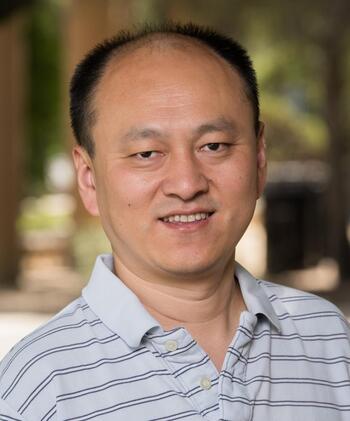Inequality by Design: China’s Distinctive Political Economy with Prof. Andrew Walder
Inequality by Design: China’s Distinctive Political Economy with Prof. Andrew Walder
Tuesday, November 15, 202211:00 AM - 12:15 PM (Pacific)
Hybrid Event: Goldman Room E409, Encina Hall | Zoom Meeting
SCCEI Fall Seminar Series
Tuesday, November 15, 2022 11:00 am -12:15 pm Pacific Time
Goldman Room E401, Encina Hall, 616 Jane Stanford Way | Zoom Meeting
Inequality by Design: China’s Distinctive Political Economy
With modest income differences and virtually no private wealth four decades ago, China’s inequalities of income and wealth are now almost as extreme as in the United States and Russia. This development is more puzzling than commonly recognized, and analyses of the determinants of household income do not address its institutional origins. Widening inequality is a byproduct of China’s highly distinctive political economy, which is designed to preserve communist party control and enforce the priorities of the central state. These include an enduringly large capital-intensive state sector supported by a financial system unusually reliant on state-owned banks; a tax base highly dependent on business volume rather than profits; a distorted fiscal system that drives local governments into property development; and political constraints on documenting and taxing private assets. These structures create large concentrations of capital and favor those with access to it, transferring incomes from households to corporations while crippling the state’s capacity to remediate resulting inequalities.
About the Speaker

Andrew Walder is the Denise O'Leary and Kent Thiry Professor at Stanford University, where he is also a senior fellow in the Freeman Spogli Institute. Previously, he served as chair of the department of sociology, and as director of the Walter H. Shorenstein Asia-Pacific Research Center and of the Division of International, Comparative and Area Studies.
A political sociologist, Walder has long specialized on the sources of conflict, stability, and change in communist regimes and their successor states. His publications on China have ranged from the political and economic organization of the Mao era to changing patterns of stratification, social mobility, and political conflict in the post-Mao era. His current research focuses on popular political mobilization in late-1960s China and the subsequent collapse and rebuilding of the Chinese party-state. He holds an AB from Johns Hopkins University and a PhD from the University of Michigan.
Seminar Series Moderators

Scott Rozelle is the Helen F. Farnsworth Senior Fellow and the co-director of Stanford Center on China's Economy and Institutions in the Freeman Spogli Institute for International Studies and Stanford Institute for Economic Policy Research at Stanford University. For the past 30 years, he has worked on the economics of poverty reduction. Currently, his work on poverty has its full focus on human capital, including issues of rural health, nutrition and education. For the past 20 year, Rozelle has been the chair of the International Advisory Board of the Center for Chinese Agricultural Policy, Chinese Academy of Sciences (CAS). Most recently, Rozelle's research focuses on the economics of poverty and inequality, with an emphasis on rural education, health and nutrition in China. In recognition of this work, Dr. Rozelle has received numerous honors and awards. Among them, he became a Yangtse Scholar (Changjiang Xuezhe) in Renmin University of China in 2008. In 2008 he also was awarded the Friendship Award by Premiere Wen Jiabao, the highest honor that can be bestowed on a foreigner.

Hongbin Li is the Co-director of Stanford Center on China's Economy and Institutions, and a Senior Fellow of Stanford Institute for Economic Policy Research (SIEPR) and the Freeman Spogli Institute for International Studies (FSI). Hongbin obtained his Ph.D. in economics from Stanford University in 2001 and joined the economics department of the Chinese University of Hong Kong (CUHK), where he became full professor in 2007. He was also one of the two founding directors of the Institute of Economics and Finance at the CUHK. He taught at Tsinghua University in Beijing 2007-2016 and was C.V. Starr Chair Professor of Economics in the School of Economics and Management. He founded the Chinese College Student Survey (CCSS) in 2009 and the China Employer-Employee Survey (CEES) in 2014.
Hongbin’s research has been focused on the transition and development of the Chinese economy, and the evidence-based research results have been both widely covered by media outlets and well read by policy makers around the world. He is currently the co-editor of the Journal of Comparative Economics.
A NOTE ON LOCATION
This seminar is a hybrid event. Please join us in person in the Goldman Conference Room located within Encina Hall on the 4th floor of the East wing, or join remotely via Zoom.
